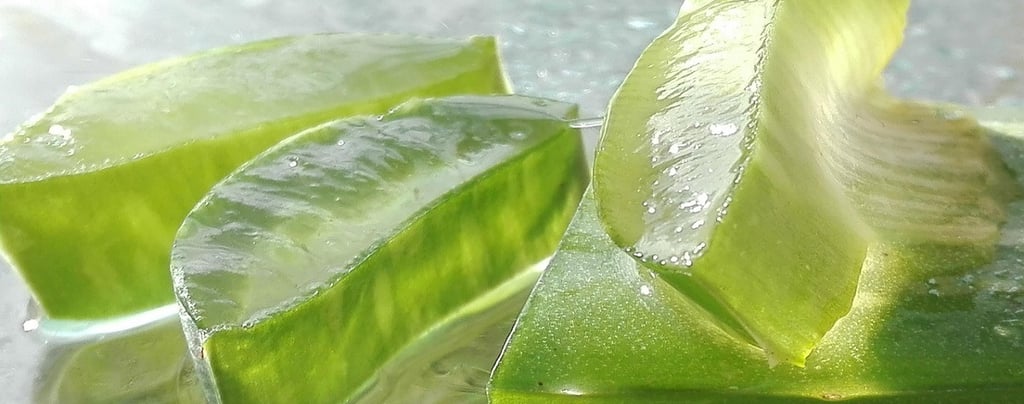Pros and Cons of Aloe Vera gel
Aloe Vera gel contains antioxidants and has antibacterial properties. It acts as a moisturizer, can help treat wounds, and may lower blood sugar levels. Read this mini blog to learn more!


The Aloe vera plant is a medicinal plant that belongs to the lily family and grows in dry and tropical regions. It is short in height with triangular and succulent leaves.
Thick, fleshy leaves of aloe vera contain a transparent gel-like substance that has medicinal properties with several health benefits. It is rich in nutrients such as vitamin C, E, folate, vitamin B12, calcium, sodium, potassium, manganese, and zinc.
Aloe vera gel promotes skin health. The cosmetic industry extensively uses aloe vera gel in the production of moisturizers, sunscreens, and anti-aging creams.
It is used to make health drinks and also acts as a natural preservative due to its anti-bacterial and anti-fungal properties.
Raw aloe vera gel can be consumed orally for its health benefits, including improved digestion, heart health, and blood sugar management.
The following are the nutrients present in aloe vera gel.
Pros of Aloe Vera Gel
1. The anti-septic properties of aloe vera gel may heal wounds.
2. Applying aloe vera gel to the skin can help moisturize it.
3. Applying aloe vera gel to the gums and teeth controls the bacteria that cause cavities, reduces plaque, and improves gum health.
4. Aloe vera gel can provide relief from the pain and burning sensation of the blisters due to its anti-inflammatory and moisturizing properties.
5. Aloe vera gel promotes collagen ( a kind of protein) production. It can reduce wrinkles on the face and improve skin elasticity.
6. Consumption of aloe vera gel can lower blood sugar levels and improve insulin sensitivity.
7. Aloe vera gel can be beneficial for the heart. It may help lower triglycerides and LDL (bad cholesterol) levels, while increasing HDL (good cholesterol) levels.
8. Aloe vera can provide relief from heartburn and IBS (irritable bowel syndrome). It reduces the inflammation in the esophagus and the intestines.
9. Aloe vera latex ( a yellow liquid between the leaf and the gel) has laxative properties and can help treat constipation.
Cons of Aloe Vera Gel
1. People with aloe vera allergy can experience itchiness and rashes on the skin.
2. Aloe latex contains aloin, a bitter yellow substance, whose excess consumption can cause diarrhea, vomiting, and stomach cramps.
3. People on diabetes medication should avoid aloe vera consumption, as it may severely reduce blood sugar levels.
4. Excessive consumption of aloe vera latex can cause hypokalemia ( low levels of potassium in the blood).
5. Consuming aloe vera during pregnancy can cause premature labor or miscarriage.
6. Overconsumption of Aloe vera latex can damage the kidneys.
Interesting Facts
1. Aloe vera is the combination of the Arabic word alloeh, which means "shining bitter substance," and the Latin word veritas, which means " truth".
2. Ancient Egyptian queen Cleopatra used to apply aloe vera gel on her body to enhance her beauty.
3. There are more than 400 varieties of the aloe vera plant worldwide.
4. Aloe vera plants are tough; some wild species can live for over 100 years.



